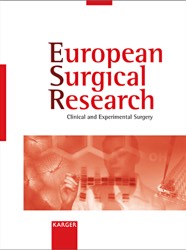Implantation of a Neo Bile Duct in domestic pigs

Extrahepatic bile duct injuries remain severe complications during cholecystectomy and often require reconstruction by bilioenteric anastomosis (i.e. hepatico-jejunostomy), which comes along with further long-term complications (e.g. recurring ascending cholangitis, secondary biliary cirrhosis). Furthermore, in case of inherent extrahepatic biliary atresia or during liver transplant artificial or engineered bile ducts could enable novel surgical strategies without the need for hepatico-jejunostomy. We present data on the implantation of in vitro generated Neo Bile Ducts in five domestic pigs. Neo Bile Ducts were engineered through decellularization of allogeneic blood vessels and recellularization with autologous cholangiocytes.On postoperative days 0, 1, 7 and 14 blood samples were taken and analyzed (AST, ALT, Bilirubin, Alkaline Phosphatase, Creatinine and Leukocytes). An magnetic resonance cholangiography was performed on postoperative day 14 with one pig. 14 days after implantation pigs were sacrificed and bile ducts were explanted. All pigs survived the complete study period without severe complications. None of the pigs showed signs of biliary leakage or peritonitis. Neo Bile Ducts were infiltrated by neutrophils and neo-angiogenesis was observed around and into the implanted tissue. Whether the presented technique enables the long-term replacement of native bile ducts has to be further evaluated.
